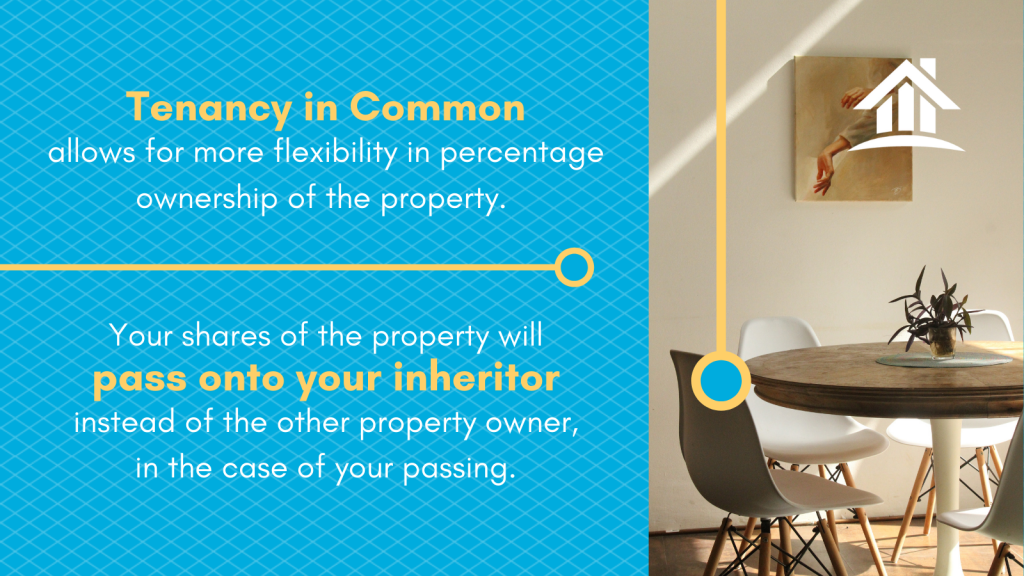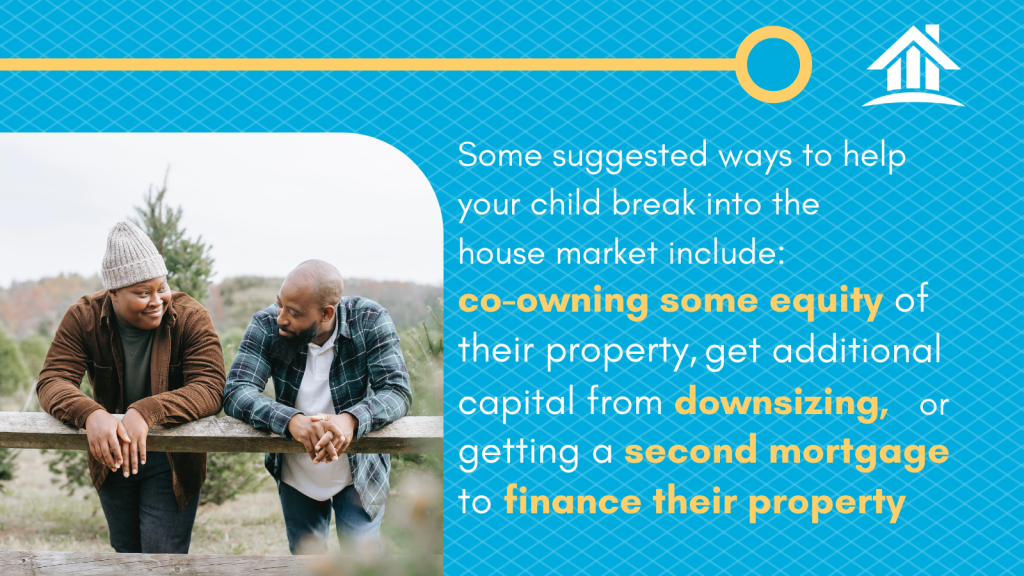Co-ownership is the process of buying real estate with a family member or friend. Because of the heated Canadian real estate market, this method of purchasing property has grown in popularity over recent years. In fact, only 42% of prospective or recent homebuyers found themselves buying a home on their own in 2019—7 points lower than 2 years ago.
In this article, we explain the different forms of co-ownership—joint tenancies and tenancies in common. We also explore the ins and outs of co-owning a property in a parent-child relationship and with friends or other family members.
Joint Tenancy and Tenancy in Common
When you purchase a home (or any property) with a friend or family member, there are two basic ways to do so: through a joint tenancy and through a tenancy in common. A joint tenancy is usually the way to go when purchasing with your spouse or significant other because, in the instance where one tenant dies, the survivor takes full control of the property. The people in a joint tenancy must also have an equal stake in the property. This may not be the ideal situation if you’re looking to purchase a property with friends since most people would want their assets going to their heirs. Additionally, you and your friends/family members may have a different initial investment which would ideally result in different percentages of ownership.
A tenancy in common overcomes these rules. A tenancy in common lets you and other owners have equal or different ownerships in the property. Your shares would also go to your heirs instead of the other owner(s) if you were to pass away. This is why a tenancy in common is ideal in most co-ownership situations.

Co-ownership with Your Parents or Children
For children who are first-time homebuyers, many housing markets may seem daunting at their current prices. A study found that although millennials enter the housing market at the same pace as prior generations, they did so with 2.5 times as much mortgage debt. Parents fear that without their help, their children will never break into housing markets like Vancouver’s or Toronto’s.
If you’re a parent that wants to help their child break into the Canadian housing market, co-ownership can be a way for you to invest your money while helping your child. In an ideal situation, you would own part of the home’s equity and sell it back to your child later on. The fact that you own equity in the house means that, in a divorce or death, your child’s partner would not have any right to your investment in most cases—a concern for many parents who help their children purchase a home through a cash gift.
There are a few ways that you can finance this investment. As your child or children move out, your need for space decreases. Therefore, you could downsize and use the remaining capital to finance your child’s first home. If you’re retired, your prime location home that’s easily accessible to downtown offices may no longer be needed for your retiree lifestyle. By moving further away from the city, you could also find some additional capital without downsizing.
Another popular method for parents is to take out a second mortgage on your home to help finance the purchase of another property. If you live in a place like Toronto or Vancouver where housing prices are the highest in the country, then a second mortgage could easily provide a large amount of capital. This method is especially effective if your child is looking to purchase somewhere in Canada that’s not as expensive.

If you need your parents to help purchase your first home, co-ownership is a great compromise for parents who don’t want to or can’t afford to provide a cash gift to finance your property. This co-ownership is really an investment for your parents, who now get to tap into a hot real estate market in preparation for retirement. However, if your parents genuinely can’t afford to co-own a property with you, it’s better not to pressure them into it. If they spend money that they don’t have, they could become financially dependent on your later on.
Co-ownership with Friends or Other Family Members
Another way to break into the real estate market is to co-own with friends or other family members. Many real estate agents have noted an uptick in clients inquiring into co-ownership. Companies like Meridian and Vancity have even created new mortgage products for those looking to pool resources together to buy a property. These products provide buyers with competitive mortgage rates and certain features that provide additional flexibilities for friends and families to buy together.
As tenants in common, you and anyone else purchasing the property can purchase in different amounts of ownership. If you and your co-owners decide to live together, as opposed to renting out the property, then this could affect the amount of exclusive space each person has. To ensure that this relationship works, make sure to write all the terms and conditions into a legally enforceable contract.
This contract can include terms regarding exclusive areas of the home and also what happens when someone sells their equity, becomes disabled, gets married, or passes away. The contract should also cover who’s responsible for repairs and renovations.
Although it may be expensive to get a lawyer to look over a contract, it can save you tons of trouble in the long term. A lawyer will make sure surprises don’t arise when the tree in your front lawn falls onto the roof of the house.
Lastly, don’t forget the basic courtesies of living with a roommate. Unlike college or university, it’s not as easy to just move out because of a bad roommate. You’re now in a joint venture with this other person or other people. Removing yourself from the relationship will include paperwork and legal and realtor fees. Therefore, you should make sure you’re co-owning with someone you trust and live well with.

If you’re trying to break into an expensive real estate market but can’t afford to, then co-ownership may be one way to go. Its increasing popularity is a testament that people are getting more creative in how they purchase real estate. Co-ownership can also be a great way for some parents to help their children break into the real estate market. Lastly, if you’re purchasing with a friend or another family member, make sure to establish a legal contract so that no surprises come up.



